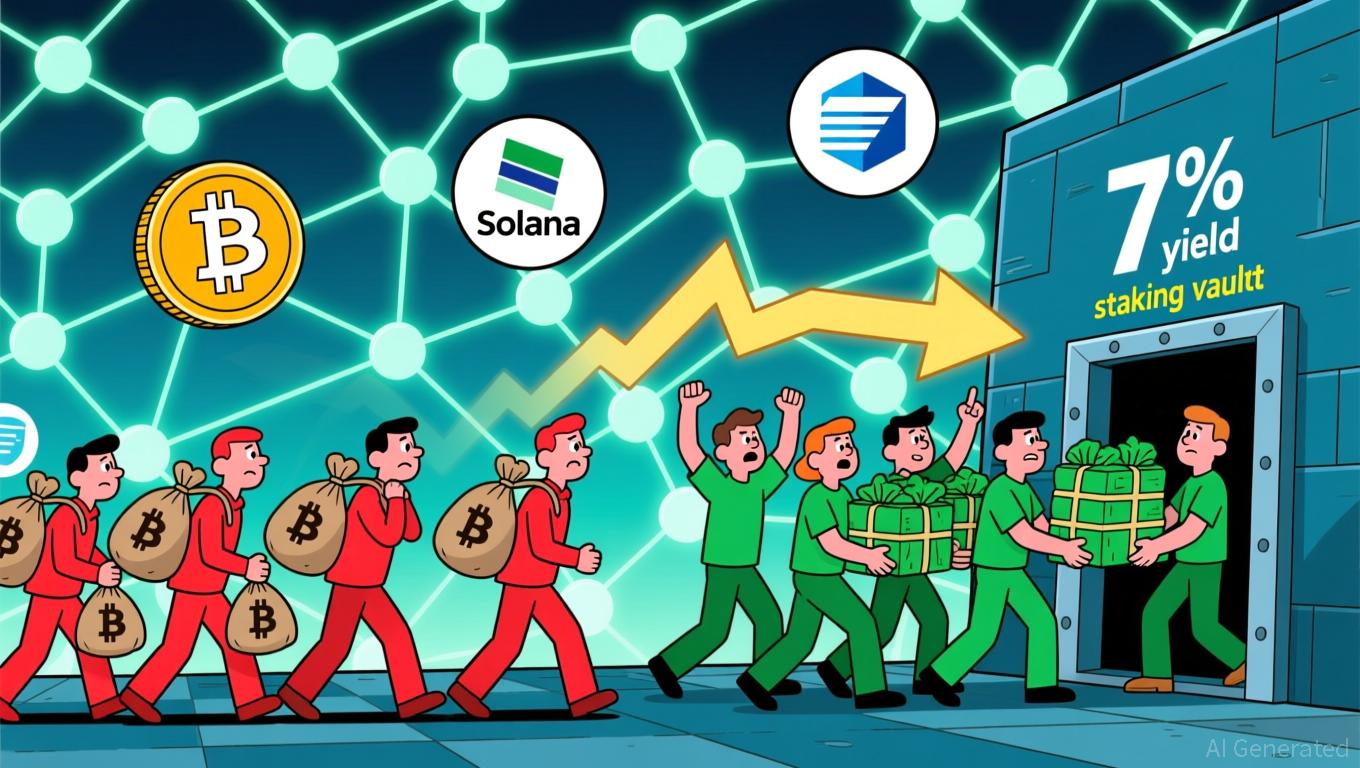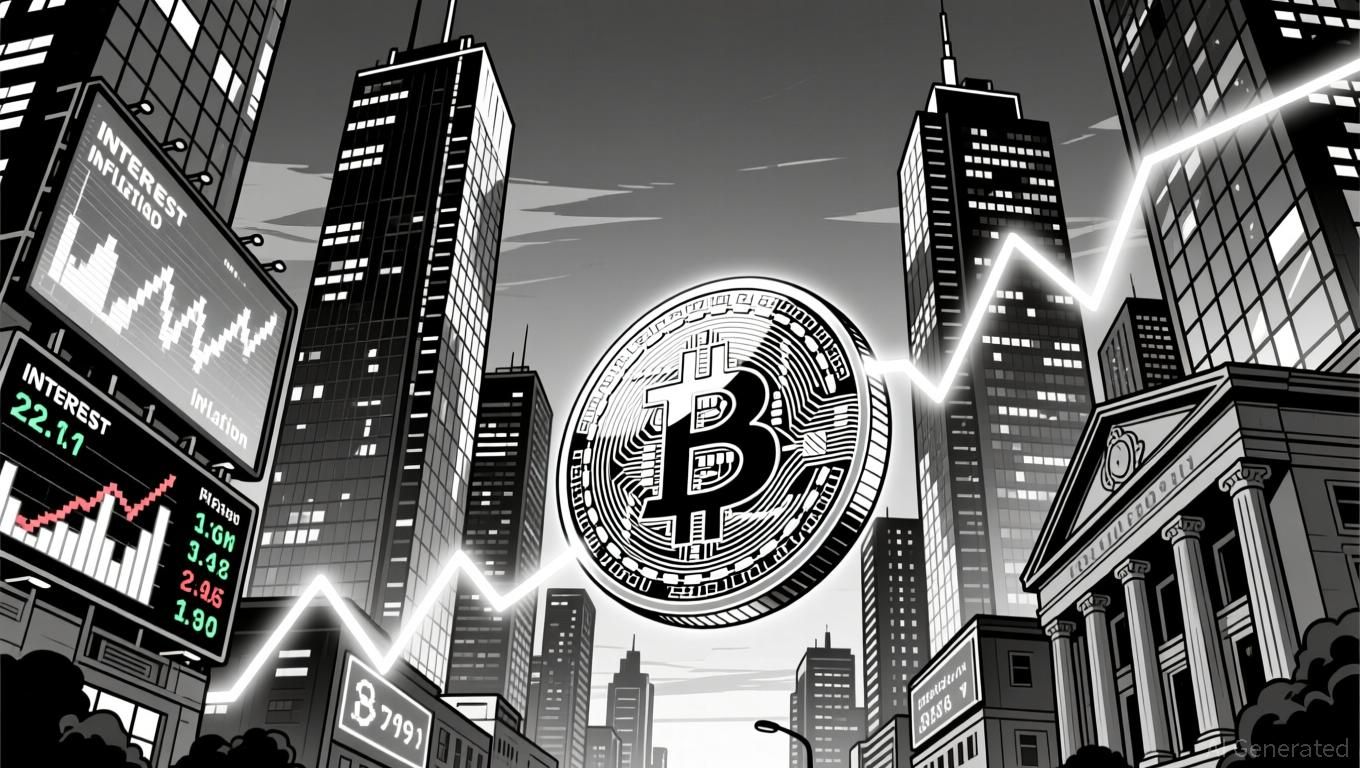Turkmenistan Approves Cryptocurrency Under Government Oversight, Navigating the Tension Between Oversight and Decentralized Principles
- Turkmenistan legalizes crypto trading under strict state control from 2026, requiring licenses, KYC/AML checks, and cold storage for exchanges. - The central bank classifies tokens as "backed" or "unbacked," regulates liquidity, and enforces miner registration with approved storage. - State control allows voiding token issuances, aligning with global trends but raising questions about balancing regulation and decentralization. - Analysts debate if strict oversight enhances security or stifles innovation
Turkmenistan Embraces Cryptocurrency with New Regulatory Law
Starting January 1, 2026, Turkmenistan will officially permit cryptocurrency trading, introducing a comprehensive regulatory system. President Serdar Berdimuhamedov has enacted legislation that marks a major departure from the nation’s traditionally insular and tightly regulated economic policies. The new framework requires crypto exchanges and custodial platforms to obtain licenses, implement Know-Your-Client (KYC) and Anti-Money Laundering (AML) protocols, and utilize secure cold storage solutions.
Despite these advancements, conventional banks are barred from participating in crypto-related activities. The central bank maintains significant oversight, with the authority to approve distributed ledger technologies or even manage its own blockchain network, effectively channeling crypto operations through state-run systems.

Key Provisions of the New Law
- Cryptocurrencies are not accepted as official currency, but are classified as either “backed” or “unbacked” assets.
- Regulators will set liquidity and redemption standards for backed tokens, while unbacked cryptocurrencies may be subject to additional restrictions to safeguard the financial system.
- All mining operations and mining pools must register with the central bank, and unauthorized mining is strictly prohibited.
- Miners are obligated to store their digital assets in approved cold wallets, with penalties for violations.
- The government reserves the right to cancel token issuances or require refunds, underscoring its centralized approach to oversight.
This legislative move is designed to update Turkmenistan’s economic landscape, encourage legitimate crypto investment, and reduce reliance on natural gas revenues. By clarifying legal standards, officials aim to increase transparency and curb illegal activities, aligning the country with international trends in digital asset governance. The law follows a government session in November that laid the groundwork for digital asset regulation and proposed the creation of a State Commission to supervise the sector.
Global Context and Implications
Turkmenistan’s initiative mirrors a global trend toward digital asset regulation. Other nations, such as the United Kingdom and South Korea, have also introduced policies to integrate cryptocurrencies into mainstream finance, including tax incentives for DeFi users and expanded AML rules. However, Turkmenistan’s distinctly centralized model raises questions about the trade-off between regulatory control and the decentralized ethos of crypto. Experts note that while stringent rules may limit innovation in decentralized finance, they could also strengthen security and consumer safeguards.
The rollout of this law will challenge Turkmenistan to balance its authoritative governance with the open, borderless nature of cryptocurrencies. As the country seeks to become a regulated center for digital assets, its experience may shape both regional adoption and broader international regulatory approaches.
Disclaimer: The content of this article solely reflects the author's opinion and does not represent the platform in any capacity. This article is not intended to serve as a reference for making investment decisions.
You may also like
Harmonizing Progress, Earnings, and Environmental Responsibility: Redefining the Modern Corporate Sustainability Formula
- Global corporations are embedding sustainability into operations to meet environmental goals, driven by regulations and investor demands. - HP Inc. and Tesla highlight AI integration and EV cost savings as strategies to balance profitability with carbon reduction. - Energy firms like Eco Wave Power and Core Scientific are advancing renewables and energy-efficient infrastructure amid decarbonization trends. - Challenges persist, including economic pressures and regulatory hurdles, but innovations in finan

Bitcoin Updates: Derivatives Market Confidence Faces Off Against ETF Outflows—Will Bitcoin Reach New All-Time Highs?
- Bitcoin surged to $126,296 in October 2025 via ETF inflows but retreated to $80k amid waning institutional demand and higher rates. - Derivatives activity shows 40x YTD open interest growth, with traders betting on a $120k rebound if $83.5k support holds. - Technical indicators remain mixed: price below 50-day MA and thin order books risk further volatility, but OTC accumulation persists. - Fed policy and ETF flows will determine Bitcoin's path—stabilization near $83.5k or a test of 2025 highs—amid signi

Solana Latest Updates: Bitcoin ETFs See $3.79B Outflow as Solana Rises—CoinShares Withdraws Application
- CoinShares withdrew its SEC filing for a staked Solana ETF amid shifting investor capital from Bitcoin to Solana due to competitive staking yields and lower fees. - Bitcoin ETFs faced $3.79B in November outflows, while Solana ETFs attracted $621M in inflows, driven by 7% staking rewards and institutional-grade infrastructure. - SEC's Project Crypto streamlined altcoin ETF approvals, enabling Grayscale's Dogecoin/XRP ETFs and Franklin Templeton's upcoming Solana ETF to expand diversified crypto exposure.

Bitcoin slips 0.15% in 24 hours as limited-supply presales and expectations of rate cuts influence market trends
- Bitcoin fell 0.15% in 24 hours to $91,128.39 amid shifting macroeconomic expectations and institutional activity. - Bitcoin Munari’s fixed-price presale (21M tokens) offers predictable supply dynamics, contrasting Bitcoin’s volatility. - JPMorgan’s 1.5x leveraged BTC notes (launching Dec 2025) raise concerns over risk management and market influence. - Bhutan expands blockchain adoption via Ethereum staking and crypto tourism payments, while MSTR faces competition from Coinbase/BlackRock in Bitcoin accum
